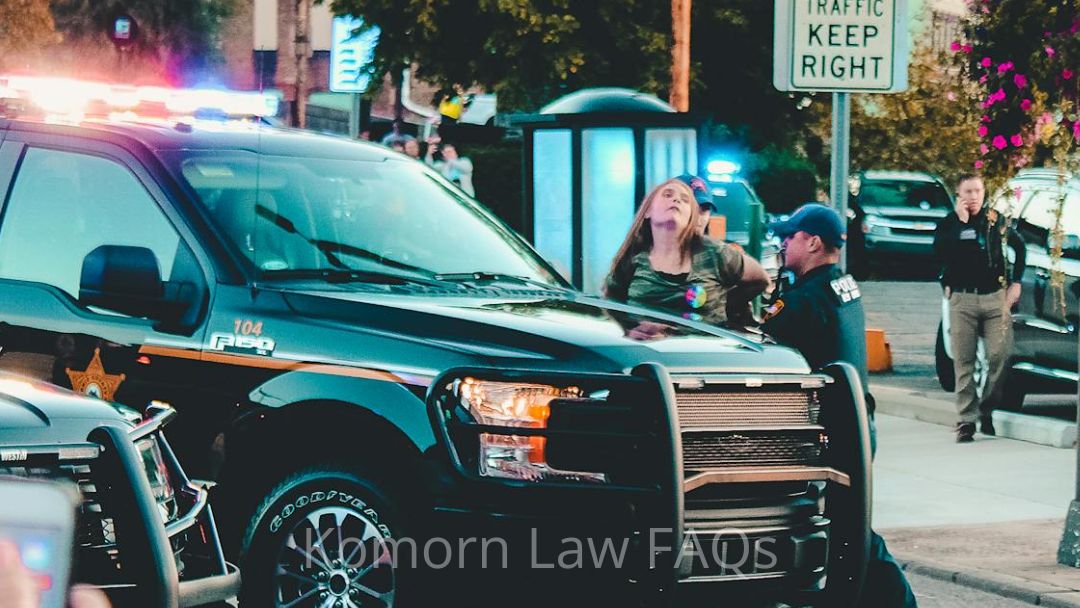Michigan Criminal Laws FAQs Drunk Driving (Operating While Intoxicated - OWI)FAQ 1: What is the legal blood alcohol content (BAC) limit in Michigan? Answer: In Michigan, the legal BAC limit for operating a vehicle is 0.08% for individuals 21 years of age or older. For...

Terry Stop and Refusal to Identify Yourself to Police
Because this is how it always goes…
This is the second part of this post. Read this first – Just Because You’re Hanging Out in a High Crime Area Doesn’t Make You Suspicious.
Standard for Investigatory Detentions / Terry Stops
Under Terry v Ohio and other well established Fourth Amendment cases, an officer can detain a person for a brief investigatory stop if the officer has reasonable suspicion the person is engaged in, or is about to be engaged in, criminal activity.
While the level of suspicion required for a Terry seizure is less than that required for probable cause to arrest, an officer must have more than an inchoate or unparticularized suspicion or hunch.
A Terry seizure is only lawful if an officer has an objectively reasonable particularized suspicion that the specific individual being stopped is engaged in wrongdoing. Determining whether this standard is met requires a fact-specific analysis of the totality of the circumstances known to the officer when the seizure occurred.
Mere Presence in “High Crime” Area and Refusal to Identify
While “presence in a high-crime area may support the existence of reasonable suspicion, the Court noted this is so only if a suspect engages in suspicious behavior.”
Without more, the Court noted there is nothing suspicious about someone sitting alone in a parked car in an apartment-complex parking lot while visiting a resident of that complex, especially during daylight hours when there was no evidence as to how long he was parked there.
Additionally, mere presence in an area of frequent criminal activity does not provide particularized suspicion someone is engaged in any criminal activity, and an officer may not detain someone simply because that person declines a request to identify themself.
Even when viewed together, the Court found these facts did not provide the officers with an objectively reasonable particularized basis for suspecting that Prude was trespassing at the complex when they detained him. Because the officers were not acting lawfully in the performance of their duties when they detained Prude, a required element of the charged offenses, there was insufficient evidence to support his convictions beyond a reasonable doubt.
The Court also highlighted well established caselaw “that a refusal to cooperate [with police], without more, does not furnish the minimal level of objective justification needed for a detention or seizure.”
While the officers had the right to seek a consensual encounter with Prude in the parking lot to determine if he was engaged in criminal activity and to advise him of any trespass policy the complex may have had, there was no evidence that Prude engaged in any suspicious behavior to provide a particularized basis for a seizure under the Fourth Amendment.
The Court noted that “finding reasonable suspicion under these circumstances would effectively mean that any person who is approached by an officer in a high-crime area must fully cooperate with that officer or else be subject to a Terry seizure” and that “ironically, the compliance that would be required to avoid a seizure would essentially amount to a seizure.”
The Court expressly declined to create “an exception to the Fourth Amendment for all people living in or passing through certain neighborhoods.”
Officers are reminded that except for the requirement to possess a valid operator’s or chauffer’s license when operating a motor vehicle and to display it upon demand of any police officer under MCL 257.311 when lawfully stopped by that officer, and absent unique circumstances such as concealed pistol license holders lawfully stopped by police, there is generally no legal duty under state law to provide identification or otherwise cooperate with police requests or demands for information.
Komorn Law (248) 357-2550
Criminal Defense | DUI | Traffic Tickets | Business | Family Law
Determining Whether Officer’s Actions were “Lawful”
When reviewing challenges to convictions in cases where the lawfulness of police action is an element of the criminal offense, as it is for resisting and obstructing a police officer and fleeing and eluding, courts will view the facts in the light most favorable to the prosecution and then determine whether the officer’s actions were “lawful” by viewing those facts under a lens sufficiently deferential to that conduct. As such, officers are reminded of the importance of remaining thorough in their articulation of the facts and circumstances surrounding their actions and the exercise of their lawful authority.
Holding
Because the officers’ actions were outside the lawful performance of their duties, a required element for each offense, the prosecution did not prove Prude’s guilt beyond a reasonable doubt. Prude’s convictions were found to be invalid.
Source: Legal Update 157 Mich.gov
Just goes to show – when you fight there’s a chance you can win.
Better call Komorn (248) 357-2550
Related Posts
Sometimes our posts provide a general overview of things with opinionated sarcasm and dry humor by the writer to lighten the same old same old of other law sites. It does not substitute for legal advice. Anyone charged with a criminal offense should consult an attorney for specific legal guidance. BTW. True Fact: When Michael Komorn fights the justice system there is only one focus. You and your rights.
Recent

The Case of Cannarbor -v- The Michigan Dept of Treasury
Nice Try...This case centered on the disagreement between Cannarbor, Inc., a medical marijuana provisioning center operating in Michigan, and the Michigan Department of Treasury concerning the obligation to collect sales tax on the retail sale of medical marijuana....
Related
Feeling Bullied? Here’s Michigan’s Anti Bullying Laws.
Michigan Anti-Bullying Laws & Policies Components of State Anti-Bullying Laws and Regulations How are bullying and cyberbullying defined in Michigan anti-bullying laws and regulations? Michigan anti-bullying laws and regulations include the following...
Former 3M scientist who made unsettling PFAS discovery says bosses deceived her
Gee - What a surprise... When a former 3M scientist discovered the company’s chemicals were in human blood in the general population, she says her bosses misled her to believe it was harmless.3M accused of deceiving its own scientist about PFAS in human blood Hansen...
Drones – What Drones?
Jersey cops launched into the night sky with catapults to throw dreamcatchers at the unknown drones to entangle their props and bring em down! Just kidding - I think.Darrr.. What drones? Those drones pose no threat there are no drones. That's just a balloon,...
Cash For Kids Judge Pardoned (The Kickback Club)
Biden’s commutation for Judge in ‘kids for cash’ scandal should anger the entire universe.Biden’s commutation in ‘kids for cash’ scandal. BY MICHAEL RUBINKAMUpdated 5:32 PM EST, December 13, 2024A judge implicated in one of the most notorious judicial scandals in U.S....
Law and Crime News NOT in the Headlines (Update 12-10-24)
Just When You Thought Your Life Was Bad...Law and Crime NOT in the Headline NewsDive Into The Rabbit Hole Don't Forget Why You Were Here At Komorn Law.Call Us When You Come Out. (248) 357-2550‘Running a brothel’: Judge killed in chambers by sheriff was part of...
How Much Does It Cost To Hire a Criminal Defense Attorney?
Don't do the crime - if you can't pay the price.Average Flat Fees. Some criminal defense attorneys charge a flat fee for certain types of cases, instead of billing by the hour. This may or may not include filing fees, motions, fees, etc. Flat fees include: DUI/DWI –...























